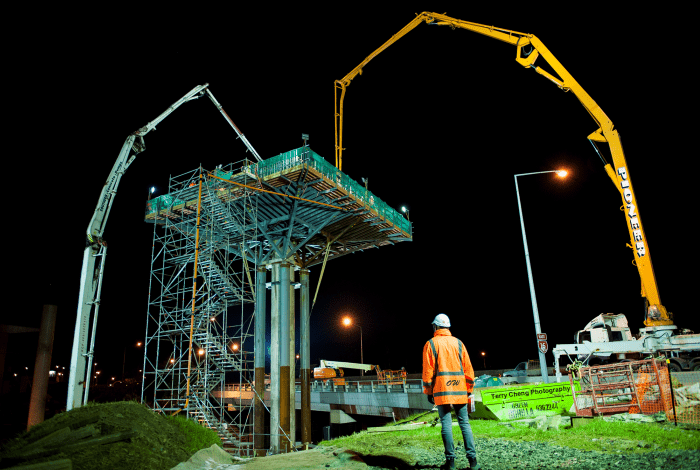It’s been a hell-of-a-time for the concrete industry in the press, but the Cement and Concrete Association (CCANZ) rubbishes allegations that elevated alkali levels in cement and concrete are putting the structural integrity of some buildings in jeopardy.
Rob Gaimster, CCANZ chief executive, says a series of investigations followed some specific allegations that high alkali cement had put buildings using concrete made of that cement at risk of ‘concrete cancer’ or alkali silica reaction (ASR).
“These investigations have determined that there are no reasonable grounds to believe that cement was supplied into the market which did not meet New Zealand standards.”
He says the Plant Audit Committee, an independent group of concrete professional specialists, which oversees 170 ready mix concrete plants, determined that concrete manufactured using the cement in question complied with the requirements of the standard for minimising ASR (CCANZ TR 3).
“An independent consultant’s report into the supply of the imported cement in question concluded that the cement did not have excessive alkali levels, and that the series of tests which showed elevated levels and created the initial confusion arose because of deficiencies in sampling techniques.
“We are pleased that the independent reports have upheld the integrity of our industry. They confirm our belief that any risks associated with high alkali cement have been thoroughly understood by the industry for decades, and are managed appropriately in concrete manufacturing.”
Rob adds that it also confirms the association’s belief that any risks associated with high alkali cement have been thoroughly understood by the industry for decades, and are managed appropriately at the concrete manufacturing end of the industry.
“Concrete is manufactured to rigorous standards to ensure alkali levels are managed, and concrete plants are subjected to an audit process for compliance with the NZ Standard 3104 Specification for Concrete Production.
“A key role of CCANZ is to deliver successful industry solutions based on technical expertise. In this instance the technical expertise of the industry has been shown to be rigorous and protects all stakeholders including the public who use the buildings constructed with concrete. Concrete is a leading sustainable material of choice for the built environment.”
Rob says that prior to this issue, a review of the Standard for cement (NZS 3122) recommended the inclusion of a specific clause for alkali levels and sampling, which will have to be undertaken in future.
If the new Standard had been in force at the time, the sampling for the tests would have been done differently, thus preventing the confusion, he adds.
The report of the Plant Audit Committee including the consultant’s report is available upon request from CCANZ – email admin@ccanz.org.nz .


Parting words from Jeremy Sole- a final column